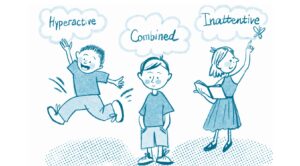As a counseling psychologist practicing in India for over 6 years, I’ve observed how therapy session tips can significantly impact the effectiveness of counseling. Whether you’re considering therapy or already engaged in sessions, understanding how to maximize your therapeutic journey can make a profound difference in your healing process. The transformation I’ve witnessed in clients who actively engage in their therapy process continues to inspire my approach to mental health care.
Table of Contents
ToggleUnderstanding the Foundations of Effective Therapy
The therapeutic relationship forms the cornerstone of successful counseling. In my practice, I’ve witnessed how this unique partnership creates a safe space for exploration and growth. This connection isn’t just about sharing your thoughts; it’s about developing a collaborative relationship where both therapist and client work together toward defined goals.
Recently, I worked with Rohit (name changed), a young professional struggling with work-life balance. His initial hesitation about therapy transformed into productive engagement once he understood the therapeutic process. Through our sessions, priced at 1500 INR each, he learned to maximize each interaction by coming prepared and maintaining open communication. His journey exemplifies how understanding the therapeutic process enhances counselling effectiveness.
One crucial aspect often overlooked is the role of therapeutic alliance. This isn’t merely about feeling comfortable with your therapist; it’s about building a partnership based on trust, mutual understanding, and shared goals. When clients feel genuinely understood and supported, they’re more likely to explore challenging emotions and experiences that lead to meaningful change.
Preparing for Your Counselling Sessions
The journey toward counselling effectiveness begins before you step into my office. I encourage clients to spend time reflecting before each session. Consider what’s happened since your last visit, any patterns you’ve noticed, or challenges you’ve faced. Writing these thoughts down, even briefly, helps structure our time together more effectively.
Creating a pre-session routine can significantly enhance your therapy experience. This might mean arriving a few minutes early to collect your thoughts, taking deep breaths to center yourself, or reviewing any notes from your previous session. These simple practices help you transition from your busy day into a more reflective mindset.
An often-overlooked aspect of preparation is setting clear intentions for each session. While it’s perfectly fine to enter therapy without a specific agenda, having some focus areas in mind can help guide our discussions more productively. Think about what you’d like to achieve or explore in each session, while remaining open to where the therapeutic process might lead.
During the Session: Maximizing Counselling Effectiveness
Being present and engaged during your session dramatically impacts its effectiveness. I often tell my clients that therapy is like diving into a conversation with yourself, with me as your guide. Don’t hesitate to ask questions, seek clarification, or express when something doesn’t resonate with you.
In couples counseling sessions, I’ve noticed how active participation from both partners leads to more meaningful breakthroughs. It’s about creating a balance between speaking your truth and listening with an open heart. The dynamics of couple therapy require additional preparation and engagement from both partners to ensure productive sessions.
One powerful therapy session tip I share with clients is the practice of mindful awareness during our conversations. This means not just sharing experiences but noticing your emotional and physical responses as you discuss different topics. These responses often provide valuable insights into deeper patterns and reactions that might not be immediately apparent.
Between Sessions: Maintaining Momentum
The work doesn’t end when you leave my office. The most successful clients integrate their insights into daily life. This might involve practicing new coping strategies, journaling about your experiences, or implementing small changes we’ve discussed. Think of our sessions as checkpoints in your ongoing journey of growth.
I recommend maintaining a therapy journal – not just for recording thoughts between sessions, but for tracking your progress over time. This practice helps you identify patterns, celebrate improvements, and pinpoint areas needing more attention. Many clients find that reviewing their journal entries before sessions helps them prepare more effectively and maintain focus on their therapeutic goals.
Creating an action plan between sessions can significantly enhance counselling effectiveness. This doesn’t mean pressuring yourself with rigid expectations, but rather setting gentle intentions for implementing insights gained during therapy. Whether it’s practicing mindfulness exercises, trying new communication strategies, or observing your reactions in challenging situations, these between-session activities deepen the therapeutic work. 
Overcoming Common Therapy Challenges
Every therapeutic journey has its obstacles. Some clients struggle with cultural stigmas around mental health, particularly prevalent in Indian society. Others face practical challenges like time management or family support. Remember, addressing these challenges head-on with your therapist can lead to valuable insights and solutions.
Time constraints often pose a significant challenge for many clients. In my practice, I’ve developed specific therapy session tips to help clients maximize their time, both during and between sessions. This includes structured check-ins at the beginning of each session and collaborative goal-setting to ensure we’re addressing the most pressing concerns effectively.
Another common challenge is the fear of judgment or shame around seeking help. In India, where mental health discussions are still evolving, these feelings are particularly common. I create a non-judgmental space where clients can explore these feelings safely, understanding that addressing these concerns is often an essential part of the therapeutic process.
Cultural Considerations in India
The Indian context brings unique considerations to therapy. Many of my clients navigate complex family dynamics, societal expectations, and traditional values alongside modern lifestyles. I approach these cultural nuances with sensitivity, understanding how they influence your therapeutic journey.
In my practice, I’ve worked with clients from various backgrounds – from traditional families to progressive individuals – each bringing their unique cultural context. This diversity enriches our therapeutic work and requires a nuanced approach to healing. Understanding these cultural dynamics often becomes an integral part of developing effective therapeutic strategies.
The intersection of traditional values and contemporary challenges requires careful navigation. Whether it’s managing family expectations while pursuing personal growth, or balancing collectivist cultural values with individual needs, these considerations inform our therapeutic approach and enhance counselling effectiveness.
Taking the Next Step in Your Healing Journey
Your commitment to therapy is an investment in yourself. By implementing these therapy session tips and maintaining consistent engagement, you’re laying the groundwork for meaningful change. Remember, the path to mental wellness isn’t linear, but each step forward matters.
I’ve witnessed countless clients transform their lives through dedicated therapeutic work. While each journey is unique, the common thread is active engagement and commitment to the process. Whether you’re dealing with anxiety, relationship issues, or personal growth goals, therapy provides a structured space for exploration and development.
Ready to begin or enhance your therapeutic journey? Contact me to schedule a consultation, and let’s work together to create a pathway to your mental well-being that aligns with your unique needs and goals.
Frequently Asked Questions
How can I get the most value from my therapy session tips?
The key to maximizing therapy session tips lies in preparation, active engagement, and consistent practice between sessions. Come prepared with specific topics to discuss, and be open to exploring deeper insights that emerge during our conversations. Regular reflection and implementation of therapeutic insights between sessions significantly enhance the value of our work together.
What should I do if I feel stuck in therapy?
Feeling stuck is normal and can actually be a valuable part of the therapeutic process. Share these feelings with your therapist – together, we can explore what’s causing this sensation and adjust our approach to enhance counselling effectiveness. Often, these moments of perceived stagnation precede important breakthroughs.
How do I know if therapy is working for me?
Progress in therapy often shows up in subtle ways: improved relationships, better stress management, or new insights about yourself. Keep track of these small changes, as they often indicate significant underlying growth. Regular check-ins and progress reviews help us ensure we’re moving in the right direction.
Is it normal to feel emotional after therapy sessions?
Yes, feeling emotional after sessions is completely normal and often indicates meaningful therapeutic work. These feelings typically settle as you process the session’s insights. Use self-care strategies we discuss to manage these emotions effectively, and remember that emotional awareness is a valuable part of the healing process.
How long should I continue therapy to see results?
The duration of therapy varies for each individual. While some clients see improvements within a few sessions, others benefit from longer-term support. We’ll regularly assess your progress and adjust our approach to ensure optimal counselling effectiveness. The key is maintaining consistent engagement while working toward your therapeutic goals.







